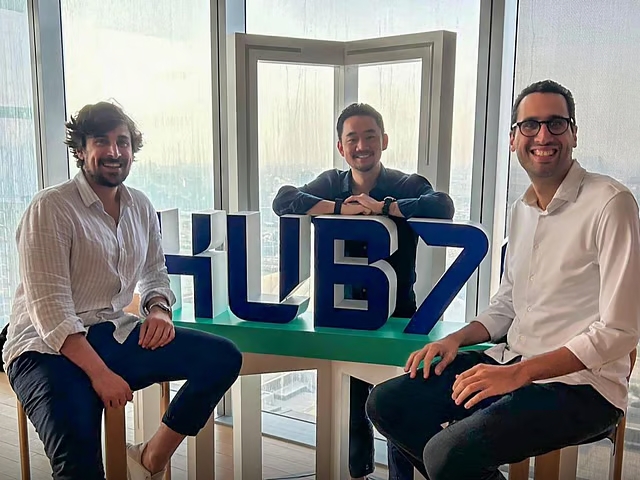eVoost AI revolutionises UAE real estate with predictive analytics

What makes eVoost stand out is its focus on the full development lifecycle in one platform
Abu Dhabi’s real estate market is a pressure cooker. According to Abu Dhabi Real Estate Centre (ADREC), in 2024, deals hit AED 96.2 billion, up 10% from the prior year, with 28,249 transactions and foreign investment doubling to AED 7.86 billion.
Projects sell out in under 48 hours, and 38 new off-plan launches kept developers scrambling. But here’s the catch: in a market this hot, the real battle isn’t selling—it’s nailing the right price, keeping brokers in line, and owning the buyer relationship.
Enter eVoost AI, an Abu Dhabi-based PropTech startup built with AI principles that bets on predictive analytics and AI-powered marketing automation to fix real estate’s oldest headaches. Is it the real deal, or just another AI pitch in a crowded field?
Data Over Guesswork
Real estate development has long been a game of educated guesses—static reports, gut calls, and endless Excel sheets. In the UAE, where AED 893 billion in transactions closed last year, those guesses can cost millions. eVoost AI takes a different tack, using predictive analytics to parse buyer preferences, pricing trends, and even social media sentiment before a project breaks ground. Think unit mixes tailored to demand, layouts that reflect actual buyer behavior, and pricing tiers that don’t leave money on the table.
Buyers and Brokers, Streamlined
eVoost’s AI doesn’t stop at planning. As its website claims, Selling Strategically is a main focus. Its multilingual AI agent runs 24/7, qualifying leads and guiding buyers through personalized journeys across web and mobile. It’s less about flashy chat and voice bots and more about conversations that convert without feeling like a hard sell.
In a market where loyalty is as valuable as the sale itself, that’s a quiet edge. Where eVoost really diverges is brand control. eVoost integrates directly into a developer’s site, keeping branding and customer data in-house. It also cleans up the messy world of broker networks, offering transparent tracking and centralized oversight to replace the usual chaos. With 38 new projects launched in Abu Dhabi last year, that kind of clarity matters.
A Crowded Field, but a Clear Niche
eVoost isn’t the only player betting on AI. UAE developers like IMKAN are working with firms like Saal.ai to streamline operations, and the Dubai Land Department is using AI to police advertising. Globally, Europe’s living sector is poised to hit €60 billion in 2025, and U.S. developers are leaning on digital tools to keep up with picky buyers. What makes eVoost stand out is its focus on the full development lifecycle—planning, pricing, sales, and relationships—in one platform. That’s a harder trick to pull off than it sounds.
Who’s Paying Attention?
For VCs exploring AI opportunities, eVoost presents a compelling option: a growing data moat from every buyer interaction. Early-stage investors might consider this for a Series A. eVoost AI announced a seed round led by Qora71, Mubadala’s Hub71 angel fund partner co-founded by Yousef Salem, CFO of ADNOC Drilling and Jaime Bañon, Entrepreneur in Residence at Hub71
For engineers and data scientists, eVoost presents a rare opportunity to work with real-time analytics and predictive models in a trillion-dollar industry. It’s not just coding—it’s cracking problems that shape skylines. And for real estate CEOs, the pitch is simple: improved pricing strategies, more streamlined operations, and a brand that doesn’t get lost in the digital shuffle. Stick with old-school methods, and you’re betting against the data— a risky move when competitors are already moving.
The Bottom Line
eVoost AI isn’t promising to reinvent real estate overnight. But in a market where every misstep costs millions, its data-driven approach might just be the edge developers need. The UAE’s boom shows no signs of slowing, and with global markets watching, eVoost could be the one to watch. Or it could be another AI hopeful that fizzles. For now, it’s got the numbers—and the attention—to make a case.